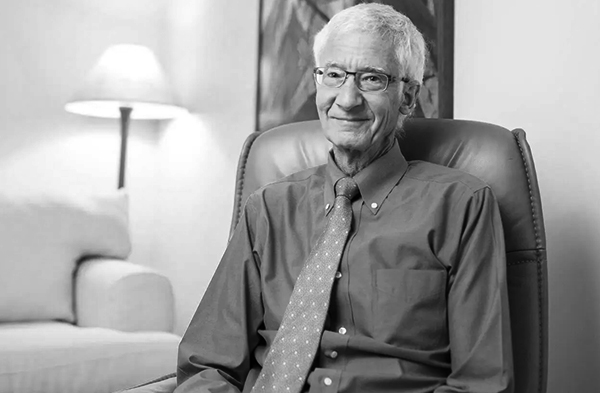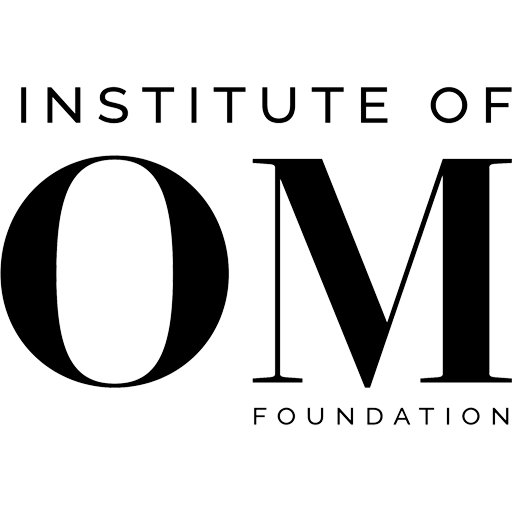Roland Griffiths, Ph.D
Dr. Griffiths was a professor of neuroscience, psychiatry, and behavioral science, and he was the director of the Center for Psychedelic and Consciousness Research at Johns Hopkins University. His research has been largely supported by grants from the National Institute on Health and he is author of over 400 journal articles and book chapters. He has been a consultant to the National Institutes of Health, to numerous pharmaceutical companies in the development of new psychotropic drugs, and as a member of the Expert Advisory Panel on Drug Dependence for the World Health Organization. He conducted extensive research with sedative-hypnotics, caffeine, and novel mood-altering drugs. In 1999 he initiated a research program investigating the effects of the classic psychedelic psilocybin that includes studies in healthy volunteers, in beginning and long-term meditators, and in religious leaders. Therapeutic studies with psilocybin include treatment of psychological distress in cancer patients, treatment of cigarette smoking cessation, and psilocybin treatment of major depression.
In 2020, Dr. Roland Griffiths did a presentation comparing psychedelic research, specifically psilocybin to Orgasmic Meditation. Dr. Roland Griffith had no prior experience with Orgasmic Mediation, but based on its modality and research made the following conclusions.
- Orgasmic Meditation may provide altered states of consciousness and transformative change similar to other meditation practices and psilocybin
- Per Dr. Andrew Newberg*, Neuroimaging studies have shown similar deactivations in default mode network functioning in both acute psilocybin and in long-term meditators and default mode network presumably underwrites this sense of self through self-referential processing. Roland posits this makes sense this would also be true for OM
- Orgasmic Meditation like psilocybin helps people dispassionately observe and let go of pain, fear, discomfort, true again of meditation
- Orgasmic Meditation transforms a conventional sense of self’s, kind of the egoic holding into something other than that you are not your mind. And both true of psilocybin and meditation, I suspect OM, recognizing that mind is capable of revealing knowledge, not readily accessible in everyday waking consciousness. And finally gaining an authoritative sense of an interconnectedness of all people and things.
- The most interesting features of meditation, psychedelic and maybe OM is that they produce these profound acute and sometimes enduring alterations of consciousness.
- Post-session ratings of mystical experiences are really predictive of long-term positive outcomes, be it in healthy volunteers or symptomatic unhealthy people
- Psilocybin is showing positive results in depression and deduced there are some plausible psychological cognitive mechanisms at play, and should be considered when looking at OM, in regard to creating a mystical experience and what role that plays. And the profound shifts in a sense of self and worldview that may result in a reconstruction of life story, a loosening of self-focused narrative and an increase in psychological flexibility.
Dr. Roland Griffiths stated: “OM group did give this questionnaire (Mystical Experience Questionnaire) to some of the OM practitioners, which seem to show a signal, but there’s this sense of the core sense of unity, this interconnectedness of all people and things. It converges with a sense of preciousness, sometimes sacredness, which fits with Andy’s1 observation, the overlapped with spiritual experience, noetic quality, sense of encountering ultimate reality, deeply felt positive move transcendence of time and space in ineffability.
Andrew Newberg, MD, PhD
Neuroscientist and Director of Research at the Marcus Institute of Integrative Health at Jefferson University
Dr. Andrew Newberg is the director of research at the Marcus Institute of Integrative Health and a physician at Jefferson University Hospital. He is board certified in internal medicine and nuclear medicine. He is a neuroscientist who studies the relationship between brain function and various mental states. He is a pioneer in the neurological study of religious and spiritual experiences, a field known as “neurotheology.” His research includes taking brain scans of people in prayer, meditation, rituals, and trance states, in an attempt to better understand the nature of religious and spiritual practices and attitudes. Andrew has also used neuroimaging research projects to study aging and dementia, Parkinson’s disease, epilepsy, depression, and other neurological and psychiatric disorders.
Dr. Roland Griffiths continued: “Mystical experiences are described as mystical, religious, peak transcendental experiences epiphanies. And here’s another factor. I mean we really don’t know what’s pulling the weight behind the transformative effects here, but psychological insight we’re convinced is really important to this as well. And it may be a supplementary or complimentary factor to mystical experience. And that’s interesting because it really resonates with what Greg2 was saying about how some people for some of these sessions are doing the work and others are giving in, allowing themselves to launch back into larger states. And we’re think both are operative here. And of course the real impact of this is that the effects endure. And this is just showing month after seven sessions. These are single high dose sessions and 80% of people are saying it’s the among most personally meaningful of their lives, 90% endorsing increased wellbeing, positive behavior change.”
Greg Siegle, PhD
Professor of Psychiatry and Psychology and Associate, Professor of Clinical and Translational Science, University of Pittsburg School of Medicine
Dr. Siegle directs the Program in Cognitive Affective Neuroscience (PICAN) at the University of Pittsburgh School of Medicine, where he is a Professor of Psychiatry, Psychology, and Translational Sciences. His research examines neural mechanisms of emotional and cognitive information processing in mood and anxiety disorders, how this information can be used to predict response to treatment, and to guide novel treatment development.
Greg Siegle discusses the changes in brain wavelengths inside of the OM and how they move together: “We’re seeing more where right now, beta over here is synced up, then alpha over here is synced up. Then gamma over here is synced up for a little while and they kind of pass this back and forth. And what looks like a dance, quantifying that dance statistically is not only a mess, but something that I’ve concluded we don’t really necessarily have the power for in this dataset. We would love to do this with higher density, EEG.”
1. Andrew Newberg, MD, PhD
2. Greg Siegle, PhD


